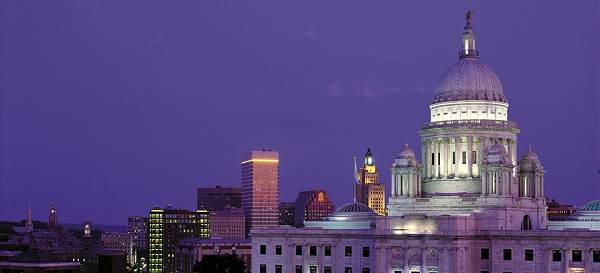Dear Editor,

In 1977, Bernard ???Ben??? Mondor bought the Pawtucket Red Sox (???PawSox???) out of bankruptcy, and turned the team into an successful Triple A baseball franchise.?? Ben Mondor???s franchise management style was well grounded in a tradition of community and family-friendly values which had helped make baseball America???s favorite past time.?? Sadly, this tradition came to end when the beloved PawSox owner passed away in 2010.?? Ben Mondor???s family subsequently sold his PawSox franchise to a business-minded group of new owners.
Out of the gates, the new team owners would demonstrate that their franchise style of management would be more focused on the bottom line than that of the Mondor family.??
Led by the late James Skeffington, the new team owners made the pitch for the public to finance a new $120 million stadium, located in the nascent ???Knowledge District??? of Providence.?? In the pursuit of public financing, the team owners played hard ball.?? If the state did not agree to their terms, the owners would relocate the PawSox out of state.??
Fortunately, this bid was rejected when it became painfully obvious that the deal was outrageously one-sided.?? In spite of their threat to leave RI, the team owners did not, or could not, relocate the team.????
Under the current legislative proposal, the PawSox owners have asked the public to finance a new $83 million (plus interest) stadium in downtown Pawtucket to be paid back over 30 years by three parties.??
The team would pay no property taxes, and apply their lease payments (along with a $12 million cash contribution), to pay off its $45 million share of the cost for the stadium.??
The state of Rhode Island would be ???paid back??? for its $23 million share of the stadium costs through projected tax receipts, such as sales and income taxes, generated by the team and businesses housed inside the stadium.??
The city of Pawtucket would be ???paid back??? for its $15 million share of the stadium cost through anticipated tax revenues generated through projected property and special taxes on prospective commercial development expected to take root adjacent to the stadium.??
Given the high net worth of some of the team owners, many believe that the stadium deal should be privately, not publicly, financed, leading some to label the multi-million dollar proposal ???corporate welfare.?????
The team owners counter, however, that their minor league business model does not permit them to build a state-of-the-art entertainment facility without significant public subsidies.??
If true, the PawSox owners need to readjust their business model or downsize their stadium expectations to remain a viable enterprise.?? Short of this, they should be open to a more reasonable proposal.??
A more troublesome concern with the current stadium proposal is that it ???outsources??? the risk of stadium ownership to the public sector.??
What happens if the team???s tax revenue projections fall short due to a drop in attendance numbers, and the team cannot make its lease payments some time over the next 30 years???
It is not hard to imagine in our impatient and instant gratification-oriented culture that stadium attendance numbers in a traditional and slow-paced sport may decline over time.?? In fact, this has already taken place at McCoy Stadium.??
Since the PawSox are a minor league baseball franchise, the drop in attendance could be greater and take place sooner than might occur with a major league franchise.?? In the worst case scenario, what would happen if the franchise were to become insolvent???
Despite assurances to the contrary, there is no ironclad financial guarantee for any third party to pay off the balance of the stadium (public) debt.?? Without a strong anchor tenant, the [largely] vacant stadium assuredly would become a taxpayer liability.??????
Another concern is the city of Pawtucket???s financial ability to pay-off its share of the debt and pay for the maintenance of the baseball stadium (This debt could increase if the purchase price for the land slated for the stadium rises.).??
As stated, the city is depending on an increase in tax revenues derived from prospective commercial development built adjacent to the stadium to pay-off its share of debt.??
I am concerned about Pawtucket???s ability to pay off its share of the debt, especially since it could be years for this commercial development to take place if all goes well.??
Pawtucket is a financially strapped city with significant financial liabilities.??
To allay some concern, Pawtucket has offered to collateralize its future state aid.?? Still concerned, legislative leaders continue to discuss ways to further shore-up Pawtucket???s financial position.??
For example, there is serious talk of ceding the proceeds from the stadium???s naming rights to Pawtucket as opposed to the PawSox franchise.??
Pawtucket???s financial position and the potential for declining attendance over the next 30 years are risks that must be addressed in ongoing PawSox stadium negotiations. If not, the state and its taxpayers, as the ultimate financial backstop of the stadium, could be left holding the bag much as they did with 38 Studios.??
If the PawSox team owners are unwilling to guarantee or substantially mitigate these risks, the state should walk away from the deal.??
Senator Jim Sheehan
Senate District 36
Narragansett & North Kingstown
